Confirmed Keynote Lectures
(arranged alphabetically)
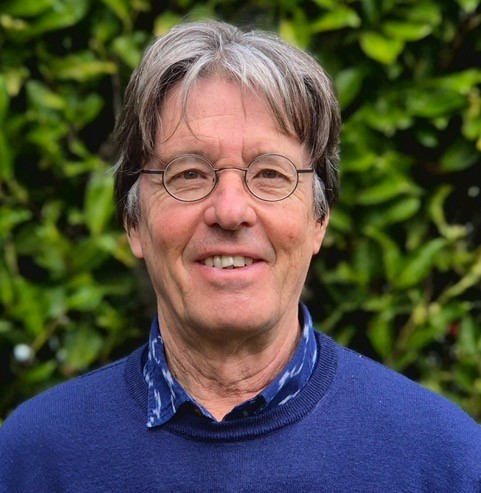
Marc de Boissieu
Université Grenoble Alpes & CNRS
Grenoble, France
Dr Marc de Boissieu is a CNRS Emeritus senior scientist, working at the SIMaP laboratory, Université Grenoble Alpes and CNRS. He is a specialist of the study of the atomic structure and dynamics of quasicrystals and aperiodic crystals using large scale facilities such as x-ray synchrotron and neutron sources. Most recently he has investigated the relationship between structural complexity and low thermal conductivity in different systems such as clathrates, disordered crystals and high entropy alloys. He has been the director of the European network CMetAC from 2009 to 2019, and is currently running the aperiodic crystals International Research Network.
Prof. Dr. Valentyn Chebanov, Director of Institute of Functional Materials Chemistry of SSI “Institute for Single Crystals” NAS of Ukraine as well as Head of Department of Applied Chemistry at Karazin Kharkiv National University. He graduated from Kharkiv State University in 1996 with honor, obtained PhD in Organic Chemistry in 2000, Doctor of Sciences in Organic Chemistry in 2010. Full professor since 2012, Corresponding Member of NAS of Ukraine since 2018. Worked as visiting researcher and visiting professor in University of Graz, University of Konstanz, Catholic University of Leuven, Artvin Çoruh University and in R&D Center of Ulkar Kimya. His main fields of scientific activity are multicomponent and one-pot organic reactions and diversity-oriented synthesis, chemical processes under non-classical methods of activation; chemistry of functional materials, supramolecular chemistry and host-guest complexes.
.jpg)
Valentyn Chebanov
Institute of Functional Materials Chemistry of SSI
Kharkiv, Ukraine
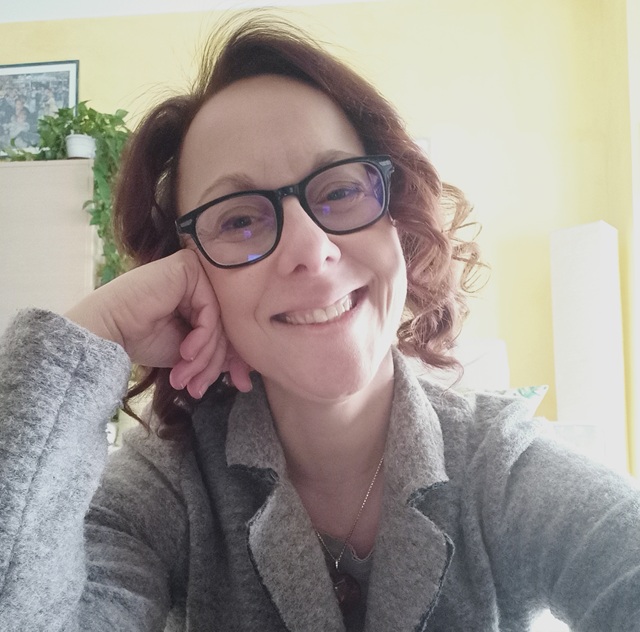
Simona Galli
University of Insubria
Como, Italy
Simona Galli received her Master Degree in Chemistry and her Ph.D. in Chemical Sciences from the University of Milan. Since 2014, she is Associate Professor of General and Inorganic Chemistry at the University of Insubria (Como, Italy). Leading the group of Structural chemistry of advanced materials, she has been making extensive use of multi-technique approaches invariably involving (in-situ) powder X-ray diffraction, in-house or at large-scale facilities, to undertake the crystallochemical characterization of inorganic/organic or organic advanced materials - coordination polymers, metal-organic frameworks, covalent organic frameworks and, to a lesser extent, pharmaceutical ingredients - actively and continuously contributing to rationalize their functional properties. Beside her research activities and teaching duties, she is very active within the Italian Crystallographic Association (having served as member of the Commission for Teaching and as treasurer) and the European Crystallographic Association (presently serving as chair of the Special Interest Group in Molecular Interaction and Recognition and as financial auditor).
Chemistry major and PhD at the Lviv State University, Ukraine. Faculty staff with academic appointment of assistant professor, associate professor, vice-rector at the Lviv State University, Ukraine.
Researcher at the Max-Planck-Institut für Metallforschung and the Max-Planck-Institut für Festkörperforschung in Stuttgart, head of research group at the Max-Planck-Institut für Chemische Physik fester Stoffe in Dresden, Germany. 2001- 2023 - Scientific Member of the Max Planck Society and Director at Max-Planck-Institut für Chemische Physik fester Stoffe (Department Chemical Metals Science) in Dresden, faculty member and honorary professor in chemical metal science at the Dresden University of Technology, Germany. Since 2023 – Director Emeritus at the Max-Planck-Institut für Chemische Physik fester Stoffe in Dresden.
Researcher at the Max-Planck-Institut für Metallforschung and the Max-Planck-Institut für Festkörperforschung in Stuttgart, head of research group at the Max-Planck-Institut für Chemische Physik fester Stoffe in Dresden, Germany. 2001- 2023 - Scientific Member of the Max Planck Society and Director at Max-Planck-Institut für Chemische Physik fester Stoffe (Department Chemical Metals Science) in Dresden, faculty member and honorary professor in chemical metal science at the Dresden University of Technology, Germany. Since 2023 – Director Emeritus at the Max-Planck-Institut für Chemische Physik fester Stoffe in Dresden.
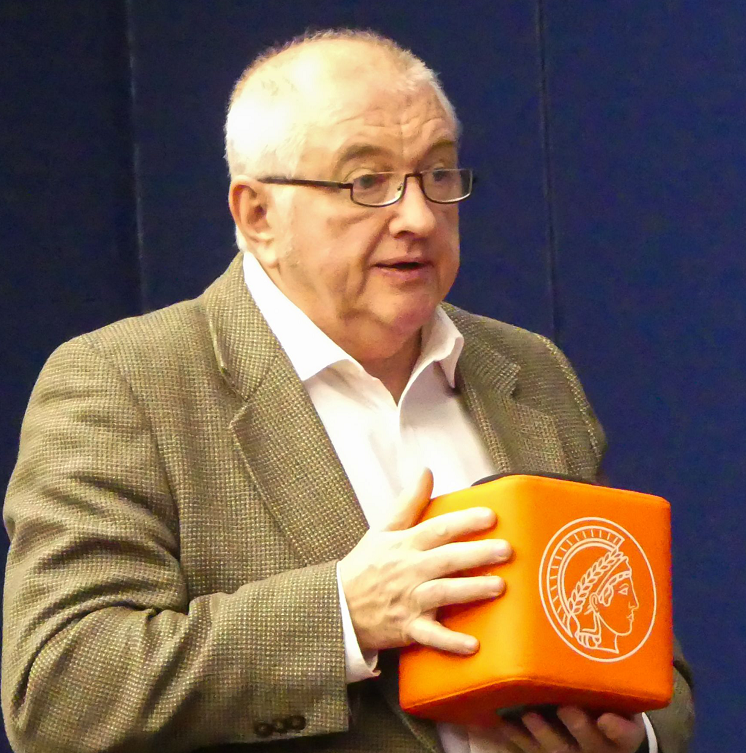
Yuri Grin
The Max Planck Institute for Chemical Physics of Solids
Dresden, Germany
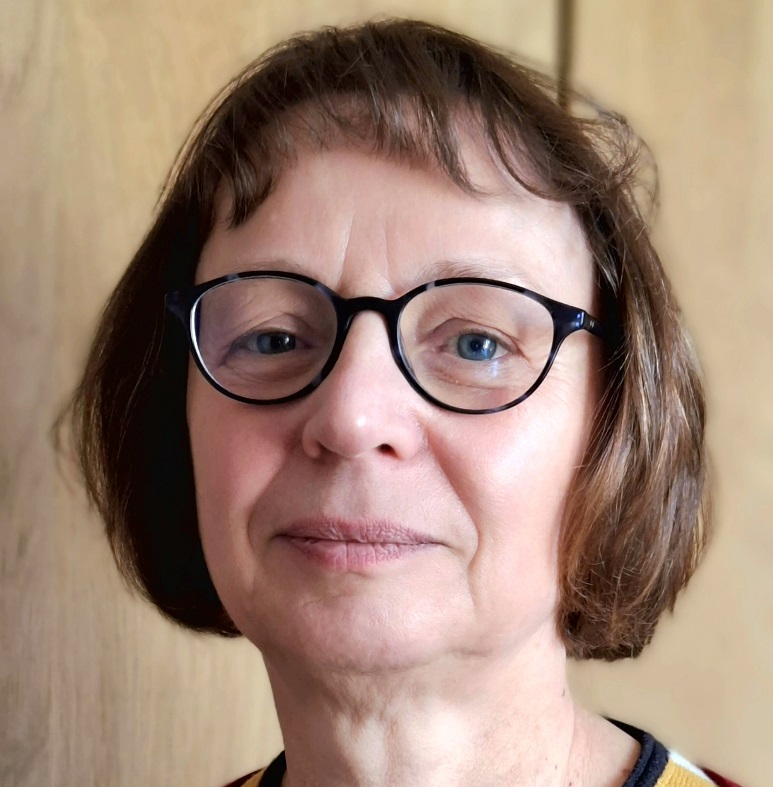
Regine Herbst-Irmer
University of Göttingen
Göttingen, Germany
Dr. rer. nat. (University of Göttingen, Prof. G. M. Sheldrick) 1986 - 1990.
Title: Crystallographic Data Bases: Systematic Examination of Structures for Higher Symmetry and Investigations on the Conformation of 1,3-Oxazolidines and Phenylsulfonamides
Graduation: Chemistry and Mathematics (1. State Examination) 1986
Studies:Chemistry and Mathematics at University of Göttingen 1981 - 1986
Professional Experience: since 2012 Senior Lecturer (Akademische Oberrätin) at the Institute of Inorganic Chemistry at the University of Göttingen. 1992 – 2012 Lecturer (Akademische Rätin) at the Institute of Inorganic Chemistry at the University of Göttingen. 1987 – 1992 Researcher at the Institute of Inorganic Chemistry at the University of Göttingen
Research interests: Development of methods to improve data and model quality in X-ray crystallography in routine structure determinations (disorder, twins) and charge density investigations (anharmonic motion, TDS, validation)
Title: Crystallographic Data Bases: Systematic Examination of Structures for Higher Symmetry and Investigations on the Conformation of 1,3-Oxazolidines and Phenylsulfonamides
Graduation: Chemistry and Mathematics (1. State Examination) 1986
Studies:Chemistry and Mathematics at University of Göttingen 1981 - 1986
Professional Experience: since 2012 Senior Lecturer (Akademische Oberrätin) at the Institute of Inorganic Chemistry at the University of Göttingen. 1992 – 2012 Lecturer (Akademische Rätin) at the Institute of Inorganic Chemistry at the University of Göttingen. 1987 – 1992 Researcher at the Institute of Inorganic Chemistry at the University of Göttingen
Research interests: Development of methods to improve data and model quality in X-ray crystallography in routine structure determinations (disorder, twins) and charge density investigations (anharmonic motion, TDS, validation)
As a research director in structural biology at the CEA, I focus on the three-dimensional structures of macromolecular assemblies. In my dual role as an educational engineer, I am also involved in scientific communication and multimedia teaching tool development.
I developed a MOOC in Biological Crystallography, which led to the co-authoring of an introductory book on the subject with several colleagues. This work is complemented by a series of explanatory videos. In addition, I coordinate the BioStInE website, a self-learning platform for structural biology that is accessible to everyone (https://www.biostine.fr/).
I developed a MOOC in Biological Crystallography, which led to the co-authoring of an introductory book on the subject with several colleagues. This work is complemented by a series of explanatory videos. In addition, I coordinate the BioStInE website, a self-learning platform for structural biology that is accessible to everyone (https://www.biostine.fr/).
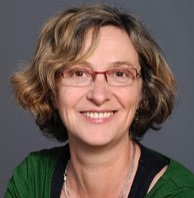
Marie-Hélène Le Du
CEA
Paris, France
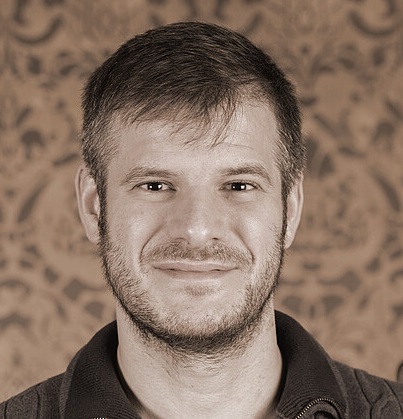
Yaşar Krysiak
Leibniz University Hannover
Hannover, Germany
Yaşar Krysiak studied chemistry at the Goethe University in Frankfurt, followed by a PhD in electron crystallography of layered materials at the University of Mainz. After a post-doctoral period at the Technical University of Darmstadt, followed by a two-year stay in Prague at the Department of Structure Analysis of the Institute of Physics of the Czech Academy of Sciences, he founded the research group Advanced Structural Chemistry at the Institute of Inorganic Chemistry of the Leibniz University of Hannover.
While starting his scientific studies in structure determination by powder diffraction, he drifted into the field of 3D electron diffraction. Initially, he specialised in the quantitative determination of stacking defects in layered materials, before devoting himself to the general introduction of electron diffraction into the field of materials chemistry. In addition to his contributions to the understanding of defects in materials, he has made important contributions to the determination of chirality by electron diffraction, the development of measurement techniques, and high temperature electron diffraction on organic molecular crystals.
His research involves the structure determination of a wide variety of materials, including hybrid perovskites, solid-state ionics, nanoporous materials such as MOFs and zeolites, biominerals and organic compounds.
While starting his scientific studies in structure determination by powder diffraction, he drifted into the field of 3D electron diffraction. Initially, he specialised in the quantitative determination of stacking defects in layered materials, before devoting himself to the general introduction of electron diffraction into the field of materials chemistry. In addition to his contributions to the understanding of defects in materials, he has made important contributions to the determination of chirality by electron diffraction, the development of measurement techniques, and high temperature electron diffraction on organic molecular crystals.
His research involves the structure determination of a wide variety of materials, including hybrid perovskites, solid-state ionics, nanoporous materials such as MOFs and zeolites, biominerals and organic compounds.
Chérif F. Matta, B.Pharm.Sci. (Alexandria University), Dipl. (Sadat Academy), PhD (McMaster University), HDR (Université de Lorraine), FRSA, FRSB, FInstP, FRSC, FCIC, FAAS, FAAAS, is Professor at Mount Saint Vincent University and an Honorary Professor at Dalhousie, Laval, and Saint Mary’s Universities (all in Canada) and a frequent Visiting Professorships at Zewail City for Science and Technology (Egypt). After receiving his doctorate from McMaster under Professor Richard F. W. Bader, Matta has been a Postdoctoral Fellow at the University of Toronto (with Nobel Laureate Professor John C. Polanyi) and an Izaak W. Killam Postdoctoral Fellow at Dalhousie University (with Professor Russell J. Boyd). He then earned a Habilitation to Direct Research from the Université de Lorraine (Nancy, France) in the laboratory of Professor Claude Lecomte. Chérif Matta’s research ranges from theoretical and computational chemistry, astrochemistry, to mitochondrial biophysics. He has introduced the concept of the electron Localization-Delocalization Matrices (LDMs), discovered an unusual role of the enzyme ATP synthase, and co-discoverer the so-called Hydrogen-Hydrogen bonding (distinct from dihydrogen bonding). Matta has given more than 270 lectures in some 40 countries and has ca. 200 publications including four books. He is the host of the programme “A Conversation with a Scientist”
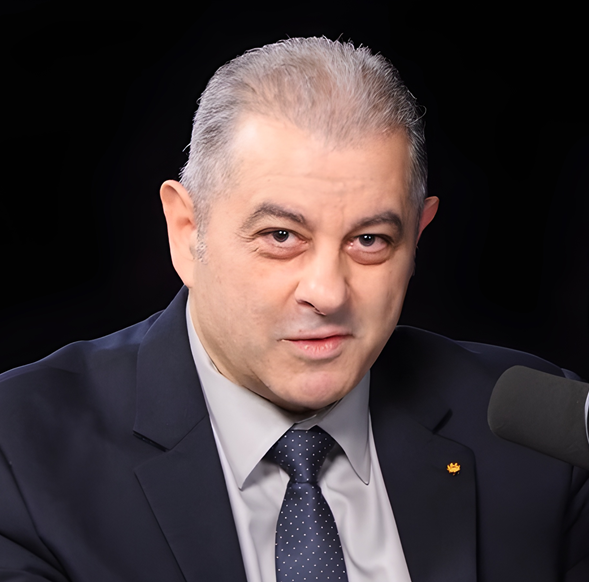
Chérif F. Matta
Mount Saint Vincent University
Halifax, Nova Scotia, Canada
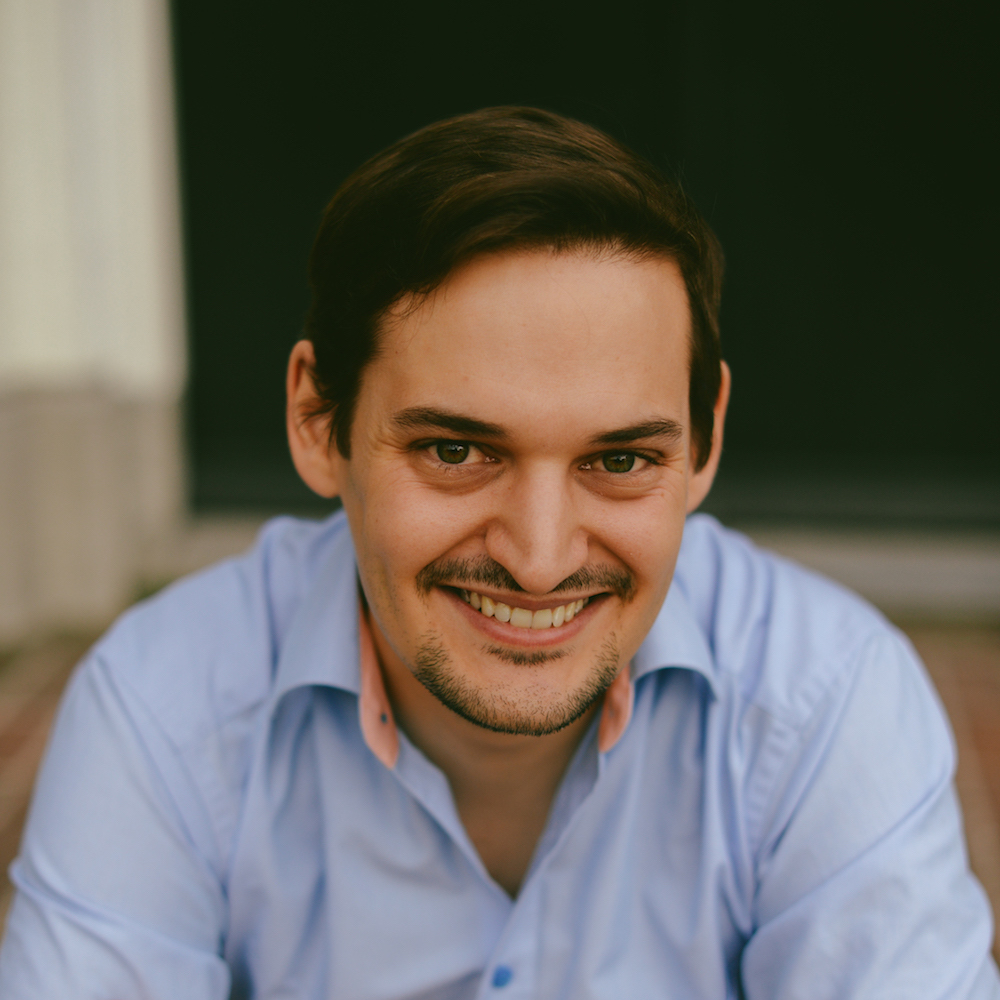
Nicholas Pearce
Linköping University
Linköping, Sweden
Nick obtained his undergraduate degree in Physics from the University of Oxford in 2012, and then his PhD in Systems Approaches to Biomedical Sciences in 2016. He moved to Utrecht in the Netherlands in 2017 to work with Piet Gros, where he obtained an EMBO long-term fellowship and worked on analysing disorder in macromolecular structures. He then obtained a Veni Fellowship and moved to the Free University of Amsterdam to work with Tom Grossmann on modelling heterogeneity in macromolecular data. He is now a SciLifeLab DDLS Fellow at Linköping University in Sweden, and he is interested in all things disordered.
Daniele de Sanctis earned his PhD in Physics from the University of Genoa in 2005, specializing in the structural studies of hexacoordinated hemoglobins. He then moved to the Instituto de Tecnologia Química e Biológica (ITQB) at the New University of Lisbon to conduct X-ray crystallography research on proteins involved in carbohydrate metabolism. In 2008, he joined the European Synchrotron Radiation Facility (ESRF) as a beamline scientist, focusing on the development of X-ray crystallography methods using synchrotron sources. More recently, he led the design and construction of ID29, the world’s first beamline dedicated to time-resolved serial crystallography at a high-energy 4th generation synchrotron. His current research interests center on developing novel methods in this field, with a focus on studying enzymatic reactions within crystals to reveal time-dependent structural conformations and reaction pathways.
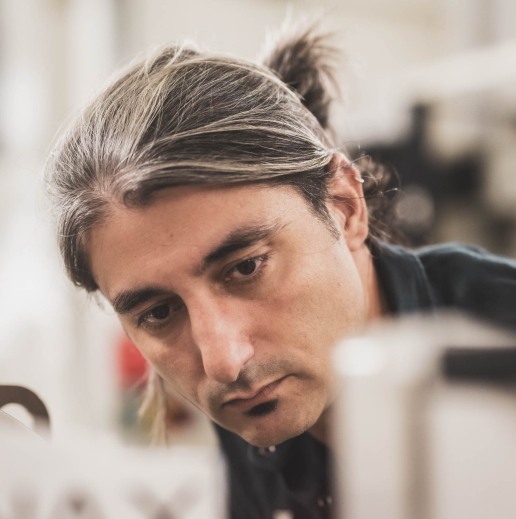
Daniele de Sanctis
ESRF - The European Synchrotron
Grenoble, France

Elena Simone
Politecnico di Torino
Torino, Italy
Dr Elena Simone has a BSc and MSc in chemical engineering from the University of Pisa (Italy) and a PhD in the same discipline from Loughborough University (UK). During her PhD she focused on the application of process analytical technologies (PAT) tools for monitoring and control of polymorphic and impure crystallizataion processes. As a lecturer in Food Crystal Engineering at the University of Leeds (2016-2021) she moved to the application of experimental and modelling crystal engineering tools for the design of innovative multiphase, crystalline formulations for food, agrochemical and pharmaceutical applications. In 2021, Dr Simone moved to Politecnico of Torino (Italy) as associate professor first, and full professor in 2024. She is currently a European Research Council fellow working on developing novel crystalline formulations for controlled release of active ingredients or nutrients, as well as designing crystallization processes with improved efficiency and sustainability.
Paola Storici is a Senior Scientist at Elettra Synchrotron in Trieste, managing the Structural Biology Laboratory and leading the Protein Targets for Drug Discovery group. She holds a PhD in Biochemistry from the University of Trieste and a Master Degree in Pharmaceutical Chemistry and Technologies, both summa cum laude. Her extensive experience spans both academic research and R&D in the pharmaceutical industry, where she has specialized in the drug discovery process, particularly in structural contribution to small molecule development. At Elettra, she balances her research activities with the management of a user support facility dedicated to protein production, quality control, and crystallization. Her research focuses on elucidating the 3D structures of protein targets relevant to complex diseases, including neurodegenerative disorders, cancer and viral infections aiming to facilitate the development of novel therapeutic strategies.
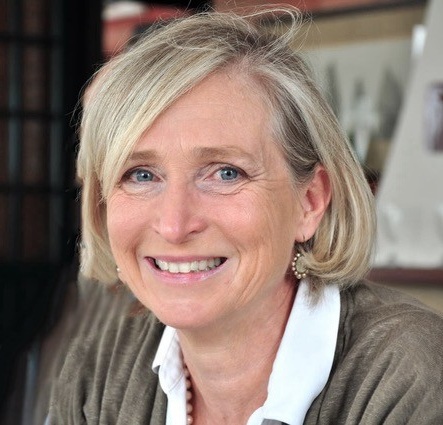
Paola Storici
Elettra Synchrotron in Trieste
Trieste, Italy
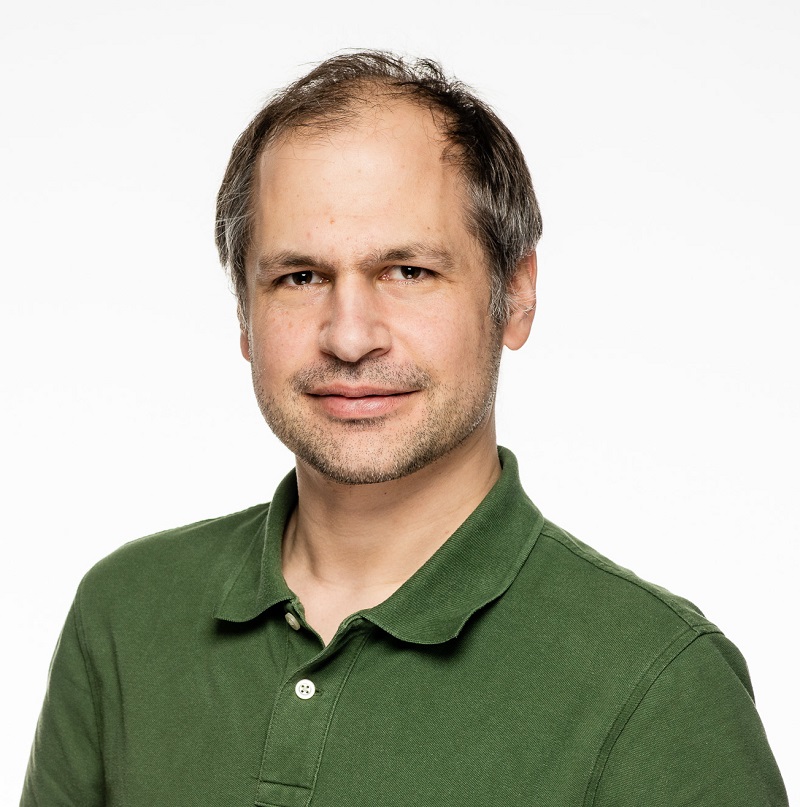
Berthold Stöger
TU Wien
Wien, Austria
Berthold Stöger received his PhD in chemistry from TU Wien and was awarded his habilitation in crystallography at the Institute of Chemical Technologies and Analytics of the TU Wien in 2016. Currently, he is employed as senior scientist at the X-Ray Center of the TU Wien and responsible for the single crystal diffraction service. He is member of the International Union of Crystallography’s commission on Mathematical and Theoretical Crystallography. His research interests are deviations from translational symmetry in crystalline materials and their consequences on diffraction patterns.
Suzanna Ward is Head of Data and Community at the Cambridge Crystallographic Data Centre (CCDC). She leads the teams responsible for delivering the Cambridge Structural Database (CSD) and the Centre’s training, education, and outreach programmes. Over her career at CCDC, Suzanna has championed initiatives to improve data accessibility, foster collaboration, and develop tools that connect and support the global structural science community. She holds a Master of Chemistry from the University of Southampton and joined the CCDC in 2006 as a Scientific Editor after training as a crystallographer.

Suzanna Ward
Cambridge Crystallographic Data Centre
Cambridge, Great Britain
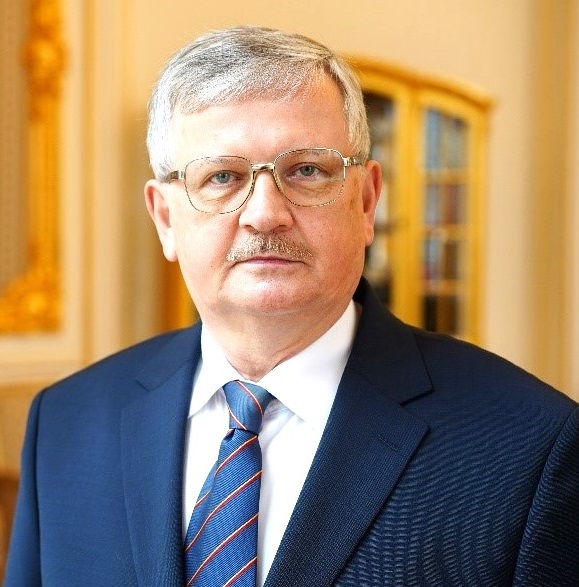
Krzysztof Woźniak
University of Warsaw
Warsaw, Poland
Krzysztof Woźniak Department of Chemistry, University of Warsaw, Pasteura 1, 02093 Warszawa, Poland
Qualifications:1998 Habilitation “On Weak Interactions in Organic Solids” awarded the Prime Minister Prize for the Best Habilitation, Chemistry Department, UW (UW stands for the University of Warsaw), Poland; 1992 PhD “On Influence of H-Bonding on Properties of Molecules, Promoter: Prof. Tadeusz Krygowski, Chemistry Department, UW, Poland; 2000 – 2018, Promoter of 21 PhDs completed and another 2 currently in progress, >30 MSc theses. Supervisor of ca. 30 postdoctoral fellows including Marie Curie Fellows, currently supervisor of 8 postdoctoral fellows), host of several sabbatical and visiting professors, >450 refereed publications in learned scientific journals, ca. 10 200 citations, H-index =46 (Google Scholar 06/2025), >130 invited lectures in total,
Recent appointments held:(2008-) Head of Crystallochemistry Laboratory and Laboratory for Structural Research at the Department of Chemistry, Univ. of Warsaw, Poland; (2016-) Head of Laboratory for Structural and Biochemical Research, Biological and Chemical Research Centre, Warsaw, Poland; (2018-2021) Research expert in WPD Pharmaceuticals, Warsaw, Poland; (2020-) Head of the Cryo-Electron Microscopy and Electron Diffraction Core Facility at the Center for New Technologies, Warsaw, Poland; (2013 – 2016) and (2020-2024) Member of the Scientific Council of the Department of Chemistry, UW, and its several committees; (2007-2010) Member of the Scientific Council of the Institute of Organic Chemistry PAS, Warsaw, Poland; (2011-2016) Member, (2020-2024) vice-Chairman, (2024-2028) Chairman of Committee for Crystallography of the Polish Academy of Sciences. (2017-2020) Chairman of the Scientific Council of Pharmaceutical Institute, Warsaw, Poland. (2017-2018) Co-chairman and (2018-2022) Chairman of the European Crystallographic Association Special Interest Group on Charge Spin and Momentum Densities (SIG2) presently named Quantum Crystallography. (2022-2026) Member of the Scientific Council of the Centre for New Technologies, Warsaw, Poland.
Qualifications:1998 Habilitation “On Weak Interactions in Organic Solids” awarded the Prime Minister Prize for the Best Habilitation, Chemistry Department, UW (UW stands for the University of Warsaw), Poland; 1992 PhD “On Influence of H-Bonding on Properties of Molecules, Promoter: Prof. Tadeusz Krygowski, Chemistry Department, UW, Poland; 2000 – 2018, Promoter of 21 PhDs completed and another 2 currently in progress, >30 MSc theses. Supervisor of ca. 30 postdoctoral fellows including Marie Curie Fellows, currently supervisor of 8 postdoctoral fellows), host of several sabbatical and visiting professors, >450 refereed publications in learned scientific journals, ca. 10 200 citations, H-index =46 (Google Scholar 06/2025), >130 invited lectures in total,
Recent appointments held:(2008-) Head of Crystallochemistry Laboratory and Laboratory for Structural Research at the Department of Chemistry, Univ. of Warsaw, Poland; (2016-) Head of Laboratory for Structural and Biochemical Research, Biological and Chemical Research Centre, Warsaw, Poland; (2018-2021) Research expert in WPD Pharmaceuticals, Warsaw, Poland; (2020-) Head of the Cryo-Electron Microscopy and Electron Diffraction Core Facility at the Center for New Technologies, Warsaw, Poland; (2013 – 2016) and (2020-2024) Member of the Scientific Council of the Department of Chemistry, UW, and its several committees; (2007-2010) Member of the Scientific Council of the Institute of Organic Chemistry PAS, Warsaw, Poland; (2011-2016) Member, (2020-2024) vice-Chairman, (2024-2028) Chairman of Committee for Crystallography of the Polish Academy of Sciences. (2017-2020) Chairman of the Scientific Council of Pharmaceutical Institute, Warsaw, Poland. (2017-2018) Co-chairman and (2018-2022) Chairman of the European Crystallographic Association Special Interest Group on Charge Spin and Momentum Densities (SIG2) presently named Quantum Crystallography. (2022-2026) Member of the Scientific Council of the Centre for New Technologies, Warsaw, Poland.
Prof. Mirijam Zobel is leading the Institute of Crystallography at RWTH Aachen University (DE) and the Institute Neutron Analytics for Energy Research at Forschungszentrum Jülich (DE).
She has received her PhD in crystallography at the FAU Erlangen-Nuremberg (DE) in 2015 and is currently chair of the committee research with neutrons representing the German neutron user community.
Her research targets the structure and dynamics of nanostructured interfaces, given their importance in structure-property relationships in nano- and energy materials. Additional interests lie, for instance, in laboratory PDF experiments, instrumentation, and High Current Accelerator-driven Neutron Sources.
She has received her PhD in crystallography at the FAU Erlangen-Nuremberg (DE) in 2015 and is currently chair of the committee research with neutrons representing the German neutron user community.
Her research targets the structure and dynamics of nanostructured interfaces, given their importance in structure-property relationships in nano- and energy materials. Additional interests lie, for instance, in laboratory PDF experiments, instrumentation, and High Current Accelerator-driven Neutron Sources.
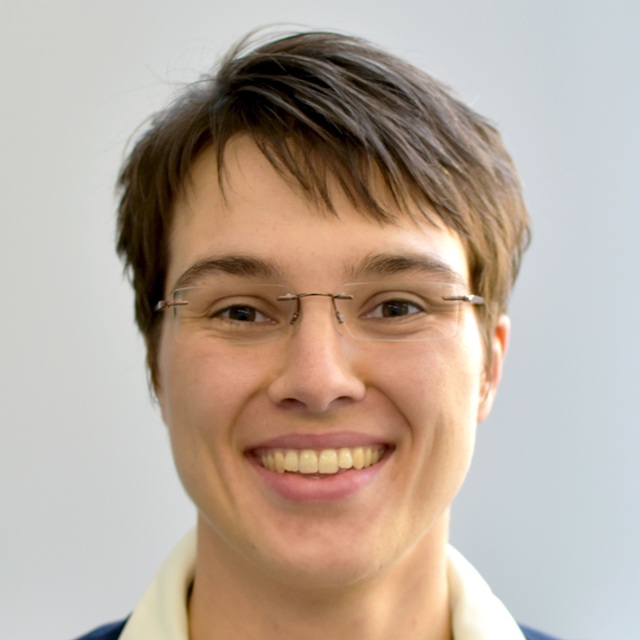
Mirijam Zobel
RWTH Aachen University
Aachen, Germany
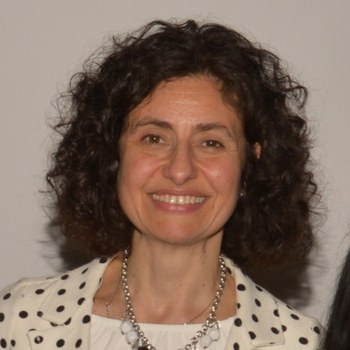
Simona Fermani
University of Bologna
Bologna, Italy
Simona Fermani is Associate Professor in Inorganic Chemistry at the Department of Chemistry “G. Ciamician” of the University of Bologna. She has completed her PhD in Chemistry in 2000 at the University of Bologna and continued her research activity as a post-doc. From 2007-2010, she worked in a multinational company (Nexans). Her research activity is primarily addressed in the field of structural biology focusing on the 3D structures of enzymes from model photosynthetic organisms and biomineralization. She is co-author of more than 120 scientific publications in peer-reviewed journals with impact factor.
Andrzej Katrusiak obtained MSc in physics at the Adam Mickiewicz University in Poznań in 1979, but in 1978 was appointed assistantship at the Faculty of Chemistry, where later he headed the Materials Chemistry Department and till today continues the studies on symmetry representations, polymorphism, phase transitions, thermodynamics, diffractometry, transformable interactions, giant deformations, pressure-induced reactions and others. Most of his research was dedicated to high-pressure techniques and transformations under pressure. He (co)chaired many conferences, including the Erice Course on High-Pressure Crystallography, IUCr High-Pressure Workshops and a series of 15 Frolic-Goats High-Pressure Workshops, European High-Pressure Research Group Meeting. He was the chairman of the IUCr High Pressure Commission and is a section editor of Acta Crystallographica B.
.png)
Andrzej Katrusiak
Adam Mickiewicz University
Poznan, Poland